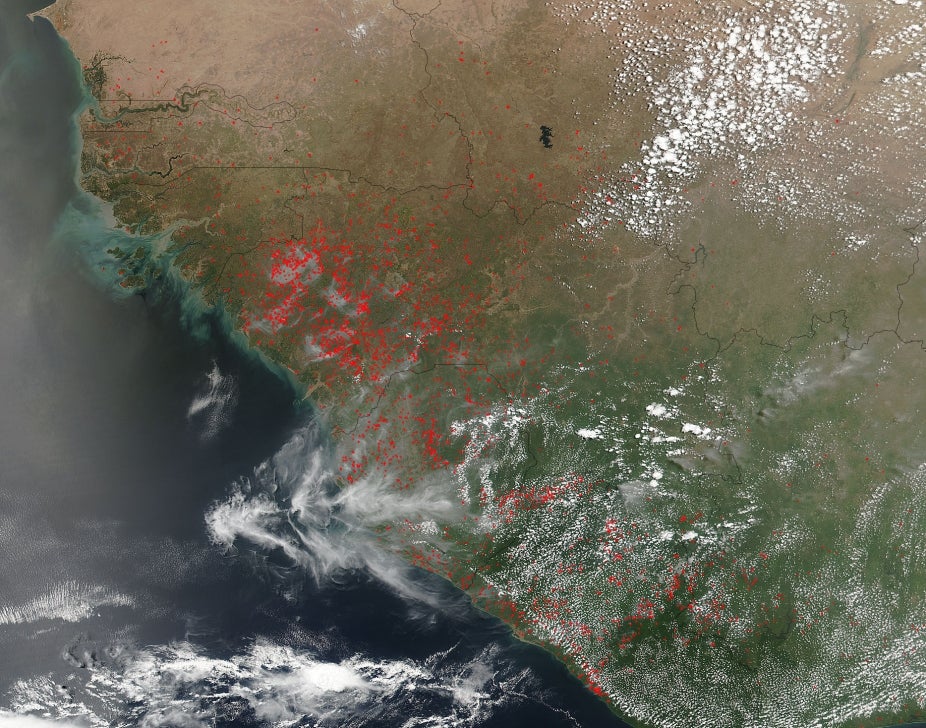How weather and wildfires interact: Insights from aerosols in Sub-Saharan Africa
Did you know that not only can the weather impact wildfires, but that wildfires can also impact the weather? Hot and dry air, combined with a lack of moisture in trees, grasses, or shrubs, are prime conditions to fuel wildfires. Once they begin to burn, wildfires emit gases and particles from the burning biomass, known as aerosols, directly into our atmosphere. Here, these aerosols can then interact with other gases and particles in ways that can affect cloud formation, precipitation, and our climate system. This complex dynamic between wildfires and weather is an active area of research, resulting in different weather pattern changes for different regions worldwide.
In this NSF NCAR Explorer Series Conversation, Dr. Osinachi Ajoku of Howard University and Dr. Rebecca Buchholz of NSF NCAR’s Atmospheric Chemistry Observations and Modeling (ACOM) Laboratory discuss the intersection between weather and wildfires. Join us to learn how particulate matter from wildfires in Sub-Saharan Africa can determine the amount of cloud and rainfall in the region and beyond.
Osinachi Ajoku
Dr. Osinachi Ajoku completed his PhD at the Scripps Institution of Oceanography in San Diego, California in June of 2020. Shortly after, he started a postdoctoral position under the Advanced Study Program (ASP). Currently, he serves as an assistant professor with Howard University’s Program in Atmospheric Science. His research revolves around better understanding aerosol-cloud-radiation interactions over Africa and the adjacent Atlantic Ocean using satellite observations and regional and/or global climate models. Additionally, he is interested in kilometer-scale model grids over Africa using CESM and E3SM to better simulate and forecast biomass burning outflow events. Outside of research, he is involved with an organization called Global Ocean Corps, an affiliate of the United Nations Decade of Science.
Rebecca Buchholz
Dr. Rebecca Buchholz completed her PhD in Australia, at the University of Wollongong’s Center for Atmospheric Chemistry, studying Southern Hemisphere atmospheric composition with a range of measurement and modeling techniques. In October, 2014 she started a Postdoctoral position with the Measurements of Pollution in the Troposphere (MOPITT) satellite-based instrument group within NSF NCAR ACOM and joined the team as a Project Scientist in 2017. Her current research uses global climate-chemistry modeling and remote-sensing measurements to answer questions about air quality and atmospheric composition, with a focus on the impact of wildfire emissions. Her interests include long term trends, large-scale variability and climate and health response from the air quality impacts of fire.
